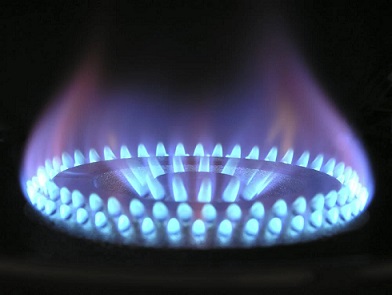A new report from the German TV news channel Welt on Monday cited a US study which has shown that the liquified natural gas (LNG) which Germany has been relying on, to sustain its energy needs through the energy crisis produced by the cessation of cheap Russian pipeline gas deliveries, may be far worse for the environment than burning the coal which the German government has sought to phase out.
Before the onset of the military conflict in Ukraine, Germany acquired as much as 40% of its natural gas needs from Russia. However as the war in Ukraine dragged on, Berlin was forced to gradually reduce its reliance on Russian gas supplies. It substituted shipments of liquified natural gas (LNG), particularly from the US, which went on to become Germany’s primary supplier of the fuel.
Robert W. Howarth, a methane researcher from Cornell University and the author of the study, said, “Across all scenarios considered, total greenhouse gas emissions from LNG are larger than those from coal, ranging from 24% to 274% greater.”
The main damage to the environment that he identified which comes from the fuel is through methane leaks in the LNG supply chain, such as in various stages of the production of the fuel, as in fracking and liquefaction, to the transport of the super-chilled gas product by sea and generating the power to maintain its temperature and transport it. The methane released through these leaks is a very powerful greenhouse gas.
He noted that even when factoring in the use of the most modern transportation vessels and utilizing the shortest possible shipping routes, the greenhouse gas emissions from just transporting LNG are at a minimum 24% higher than would be seen from conventionally burning coal.
The study noted, “In all of the scenarios considered, across all types of tankers used to transport LNG, methane emissions exceed emissions of carbon dioxide from the final combustion of LNG.”
In the New Yorker, a recent article noted the study, pointing out that its data was indicative of how poorly thought out the climate policy being pursued by the Biden administration is. During Biden’s term, the export capacities of America’s LNG infrastructure are being expanded significantly as demand from EU countries is surging due to the reduction in Russian supplies available to the EU market. Given the climate goals of the United States, all of that is in direct opposition to the country’s climate objectives.
Some German politicians have noted that part of the reason for their newfound dependence on imports of American LNG was the sabotage bombing of the Nord Stream 1 pipeline, which had previously given Germany and other EU countries access to copious flows of cheap Russian pipeline gas. After the bombing, which some accounts have alleged was perpetrated by the government in Washington DC, Germany was forced to shift its reliance to the the more expensive shipments of American LNG.

